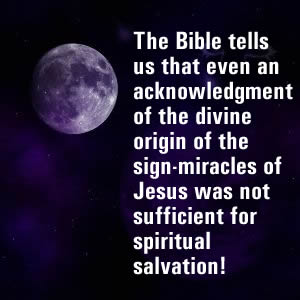Dr. George Houghton Completes 36-Year Ministry at Faith
Body
Details at faith.edu
As iron sharpens iron,
one person sharpens another. (Proverbs 27:17)
Details at faith.edu
Includes a Foreword by Carl Trueman
HT : Justin Taylor
Good observations form Unashamed Workman
 Editor’s Note: This article was reprinted with permission from Dan Miller’s book Spiritual Reflections. It appears here verbatim.
Editor’s Note: This article was reprinted with permission from Dan Miller’s book Spiritual Reflections. It appears here verbatim.
On the evening of March 30, 2002, in the city of Atlanta, Georgia, the Indiana Hoosiers upset the Oklahoma Sooners in a “Final Four” contest of the NCAA men’s basketball tournament. Following the game, Indiana coach, Mike Davis, credited God for giving his team the victory. “I have a lot of people praying for me,” he told the press, “God has placed his favor on me.”
Let me be the last to object to any praise going to God in the media. A man steps up to the microphone and declares that God factors into his view of the world, even the world of basketball—I’m with that! I lauded Mike Davis’ courage to proclaim his faith to the world on that occasion and I laud him still.
Yet I must confess my growing discomfort with the array of athletes and coaches announcing into a microphone their euphoric gratitude to God moments after an athletic victory over their opponents. My discomfort has nothing to do with bringing God into the sports world—he’s there anyway; kudos to those who acknowledge reality! My discomfort stems more from the message that may be subtly communicated by such public expressions of divine adulation.
That message, I fear, is that God plays favorites or doles out victories like a cosmic vending machine to those willing to acknowledge him publicly as the dispenser of their triumphs. I’m also troubled by the concern that thoughtful viewers will ask why God chooses not to answer the prayers offered in behalf of teams who lose. And why did, in this instance, coach Davis and his Hoosiers lose the championship game two nights later? Did the power of prayer fail between Saturday and Monday? Did God’s favor, which supposedly rested on Davis’ head on Saturday, dissipate by Monday night? Did coach Davis do something wrong on the Sunday sandwiched between those two game days?
Details at Her.meneutics
Faulkner was associated with Highland Park Baptist Church of Chattanooga and Tennesee Temple University. The TTU Almuni Page will have details as they develop.
(See Part 6)
 For more than three years, the Son of God, the true designer and creator of all things in heaven and on the earth, personally (and through the preaching of John the Baptist, the 12 apostles and the 70 messengers) offered to Israel the magnificent kingdom that had been promised to them for many centuries (i.e., Isa. 2, 11, 35 and 65; cf. Alva J. McClain, [Winona Lake, IN: BMH Books, 1959]).
For more than three years, the Son of God, the true designer and creator of all things in heaven and on the earth, personally (and through the preaching of John the Baptist, the 12 apostles and the 70 messengers) offered to Israel the magnificent kingdom that had been promised to them for many centuries (i.e., Isa. 2, 11, 35 and 65; cf. Alva J. McClain, [Winona Lake, IN: BMH Books, 1959]).
This genuine offer was contingent on one thing only: repentance (i.e., a radical change of heart toward God) on the part of Israel. And no one had any valid reason for doubting His true identity. His claim to be Israel’s divine Messiah was overwhelmingly confirmed by hundreds of spectacular sign-miracles. None of the “fingerprints of God” that we see today, from microscopic flagella to the galaxies above us, can compare to the persuasive power of those supernatural works. The Lord Jesus said: “the works which the Father hath given Me to finish, the same works that I do, bear witness of Me, that the Father hath sent Me” (John 5:36 KJV).
Nicodemus, the outstanding theologian of Israel, confessed to Jesus: “Rabbi, we know that Thou art a teacher come from God: for no man can do these miracles that Thou doest, except God be with him” (John 3:2).
But the nation of Israel, with some exceptions, rejected these great Messianic sign-miracles. Our Lord told them: “If I had not done among them the works which none other man did, they had not had sin: but now have they both seen and hated both me and my Father.” (John 15:24). The Jewish leaders even attributed His miracles to the power of Satan (John , 52).
Note: This article is reprinted from The Faith Pulpit (July/August 1996), a publication of Faith Baptist Theological Seminary (Ankeny, IA). It appears here with some slight editing.
 There is a great deal of confusion today regarding what is involved in victorious Christian living and what makes it possible. Some of the answers being given out are plainly wrong, and many others are only partially true. It will be in the teaching of the Scriptures that God’s answers will be found. It is not possible in this brief treatment to mention everything which could be said, but a framework will be developed to note God’s wonderful provisions for us in this area of victorious Christian living.
There is a great deal of confusion today regarding what is involved in victorious Christian living and what makes it possible. Some of the answers being given out are plainly wrong, and many others are only partially true. It will be in the teaching of the Scriptures that God’s answers will be found. It is not possible in this brief treatment to mention everything which could be said, but a framework will be developed to note God’s wonderful provisions for us in this area of victorious Christian living.
The death and resurrection of Christ are at the very heart of the gospel (I Corinthians 15:3-4) “Christ died for our sins … and He rose again the third day” the Apostle Paul declares. How are these benefits applied to us? Again, the Apostle states, “To him that worketh not, but believeth on Him that justifieth the ungodly, his faith is counted for righteousness” (Romans 4:5). It is by personal trust in what Christ has accomplished through the shedding of His blood and His bodily resurrection that salvation is appropriated. This is God’s gospel; yet there are false gospels abounding, such as the sacramental gospel—”I need the Church’s sacraments in order to be saved”, the Iegalislic gospel—”I must do something or obey some set of rules in order to be saved”, the whole gospel—”Social involvement is necessary in order to be saved”, or the full gospel—”I must have an emotional experience with the Holy Spirit in order to be saved”. The Bible’s attitude toward diverse gospels and their proclaimers is clear: “If any man preach any other gospel unto you than that ye have received, let him be accursed” (Galatians 1:9).
One of the main reasons why there is uncertainty about Christian living is due to the fuzzy thinking about the Gospel and the significance of trusting in Christ’s death and resurrection for the forgiveness of sins. There are times when tolerance may be a virtue, but this is not true when it comes to Biblical teaching.
Discussion